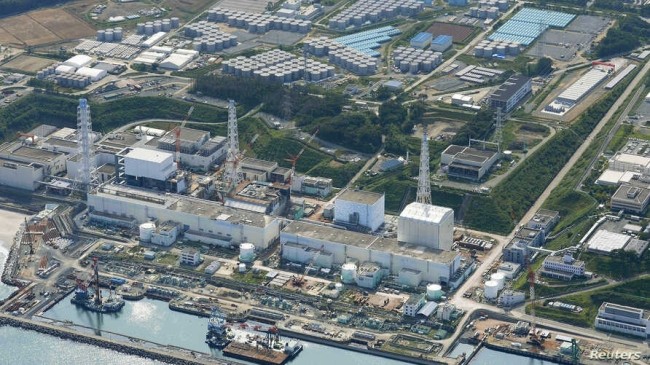| |
 |
|
| ▲ Fukushima Daiichi Nuclear Power Plant |
The Japanese government officially decided to discharge the contaminated radioactive wastewater from Fukushima Daiichi Nuclear Power Plant into the sea. Previously, Prime Minister Suga Yoshihide had claimed that disposal of polluted water was “a task that cannot be postponed” and pushed the agenda despite the opposition of surrounding countries and Japanese fishers. Following this decision, there is a growing concern that contaminated wastewater will flow into the coast of Jeju Island within seven months.
According to the NHK, on April 13, the Japanese government decided to release the wastewater from the Fukushima Daiichi Nuclear Power Plant into the sea at the cabinet meeting in the morning. To execute the plan in two years, they will prepare the process from the Fukushima Daiichi Nuclear Power Plant site. The discharge into the ocean will be carried out for 30 to 40 years.
Currently, about 1.25 million tons of contaminated water is stored at the nuclear plant. During the 2011 Great East Japan Earthquake, water was injected to cool the melted nuclear fuel, generating an average of 180 tons of contaminated water with radioactive materials every day.
The Japanese government and Tokyo Electric Power Company assert that if the concentration of radioactive substances is diluted, it is safe to release them into the sea. This claim is based on the advice that it is realistic to dilute contaminants below the threshold and release them in the sea or in the air, made by an expert subcommittee of the Ministry of Economy, Trade and Industry in February. Japan’s policy is to dilute contaminants containing radioactive tritium with seawater to a level 1/40 of the statutory threshold.
It will include local municipalities and fishers to monitor tritium concentration before and after offshore discharge, and the TEPCO will compensate for economic damage caused by rumors.
Nonetheless, local fishers say they cannot trust the government’s plan. An insider in the Japanese fishing industry told NHK, “The government simply says that (the contaminated water) can be released into the sea, but we are still not convinced about the safety of contaminated water at home and abroad, and rumors result in damages.” They criticized, “The government ensured us that it will take firm measures, but it is not reliable and won’t provide specific details.”
Others point out that the discharge of contaminated water to the ocean was decided without sufficient explanation. The Japanese government received opinions from stakeholder organizations, such as the National Federation of Fisheries Cooperative Associations, but it never held a public hearing to listen to the views of the general public.
Koyama Ryota, a professor at Fukushima University, pointed out that “there is no widespread understanding among the public about what ‘treated water (the Japanese government’s term for contaminated water)’ is and how the treatment method has been reviewed.”
The damage caused by this decision is expected to affect Korea as well. Research shows that if contaminated water with radioactive substances is discharged into the ocean, it takes only seven months to reach the coast of Jeju. Last year, the Helmholtz Centre for Ocean Research at the University of Kiel in Germany produced a simulation study showing that contaminated water from Fukushima will reach Jeju in 200 days and the coast of the East Sea after 280 days.
The Korean government responded, “If the Japanese government decides to release contaminated water from the Fukushima nuclear power plant into the ocean without sufficient consultation, it will be difficult to accept it.” The Ministry of Foreign Affairs in China also commented, “The disposal of contaminated wastewater from the Fukushima nuclear power plant bears on global public interests and the immediate interests of neighboring countries. The issue should naturally be handled in a prudent and appropriate manner.” |




















